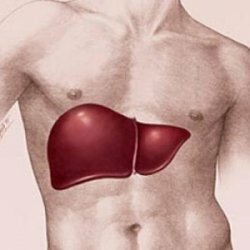Why after a flu there are complications

Influenza can provoke very severe lesions in a person of the nervous system( encephalitis - inflammation of the brain, meningitis - inflammation of the pia mater, arachnoiditis - a limited inflammation of the arachnoid of the brain).Influenza viruses cause hemorrhages and blockages of small blood vessels, destroy the protection of the respiratory tract from microbes, destroy cells of the immune system.
People who have had a brain injury or concussion are more vulnerable. However, not all people who have had the flu can experience complications. The secret lies in the characteristics of the human body, in its reaction to the virus. However, many people have complications. So let's try to figure out why after the flu there are complications?
Causes of complications after the flu
Neurological complications after the flu are most common in people who abuse alcoholic beverages. This is understandable, because alcohol for the nervous system is the strongest poison. It dramatically reduces the stability of the nervous system to disease-causing factors. Even a single intake of alcohol in large doses can cause irreparable harm to the nervous system. Unfortunately, many believe that by drinking vodka( infused with pepper), they can break off the respiratory infection. This is a profound error. Under the influence of alcohol, blood pressure can fall sharply and suddenly and cause a collapoid state( and even death).
Complications after the flu can occur in people suffering from vascular and neurological diseases, even if they were asymptomatic and hidden before the flu-like infection. In this case, influenza infection, as it were, "hits" the weakest place in the body. Therefore, a person after the flu can experience complications such as radiculitis, hypotonic or hypertensive crisis, and nervous and mental disorders.
Other complications arise because during the illness the protection of the respiratory tract is destroyed. When inhaling ciliary epithelium, mucus is released in the respiratory tract, which destroys the bacteria. Particles adhere to this mucus from the air, and then the mucus advances to the pharynx( due to the beating of the cilia) and there it is swallowed. Then everything goes to the stomach, where hydrochloric acid is already waiting for this mucus. The influenza virus joins and penetrates the cells of the ciliary epithelium, where it multiplies and leads to the weakening or death of cells of the ciliary epithelium. To allocate good mucus, quickly advance its damaged epithelium qualitatively any more can not, therefore bacteria easily enough pass through ciliary-mucous membranes, and then get to lungs. In this case, the most frequent complication after the flu can be bacterial pneumonia.
Complications after the flu are also due to the fact that after this disease the human blood vessels are affected. The border tissue( epithelium) is destroyed, and consequently, now the virus can easily get into the blood and cause serious damage to the entire circulatory system. Influenza viruses have the ability to glue together erythrocytes. They form lumps and can clog small blood vessels. Also, viruses can infect cells of the inner layer of vessels( endothelium), cause their death. All this can lead to hemorrhages and the formation of blood clots, and this in turn can seriously disrupt the supply of human organs with blood.
Another cause of complications after a flu may be suppressed immunity. Influenza viruses can infect cells that are responsible for immunity. And not at all for reproduction in them, but for destruction. The number of immune cells decreases sharply and, accordingly, the protective functions of the body weaken.
About what you need to remember
To avoid unpleasant complications, try to regularly carry out flu prevention. If you still managed to get sick with the flu, then in no time do not suffer this disease "on your feet", try to keep bed rest, provide yourself with abundant drink and quality food, ventilate the room more often. Do not self-medicate. Take only those medicines that the doctor prescribed for you. And do not forget that the effects of the flu are very insidious and can result in serious complications.



